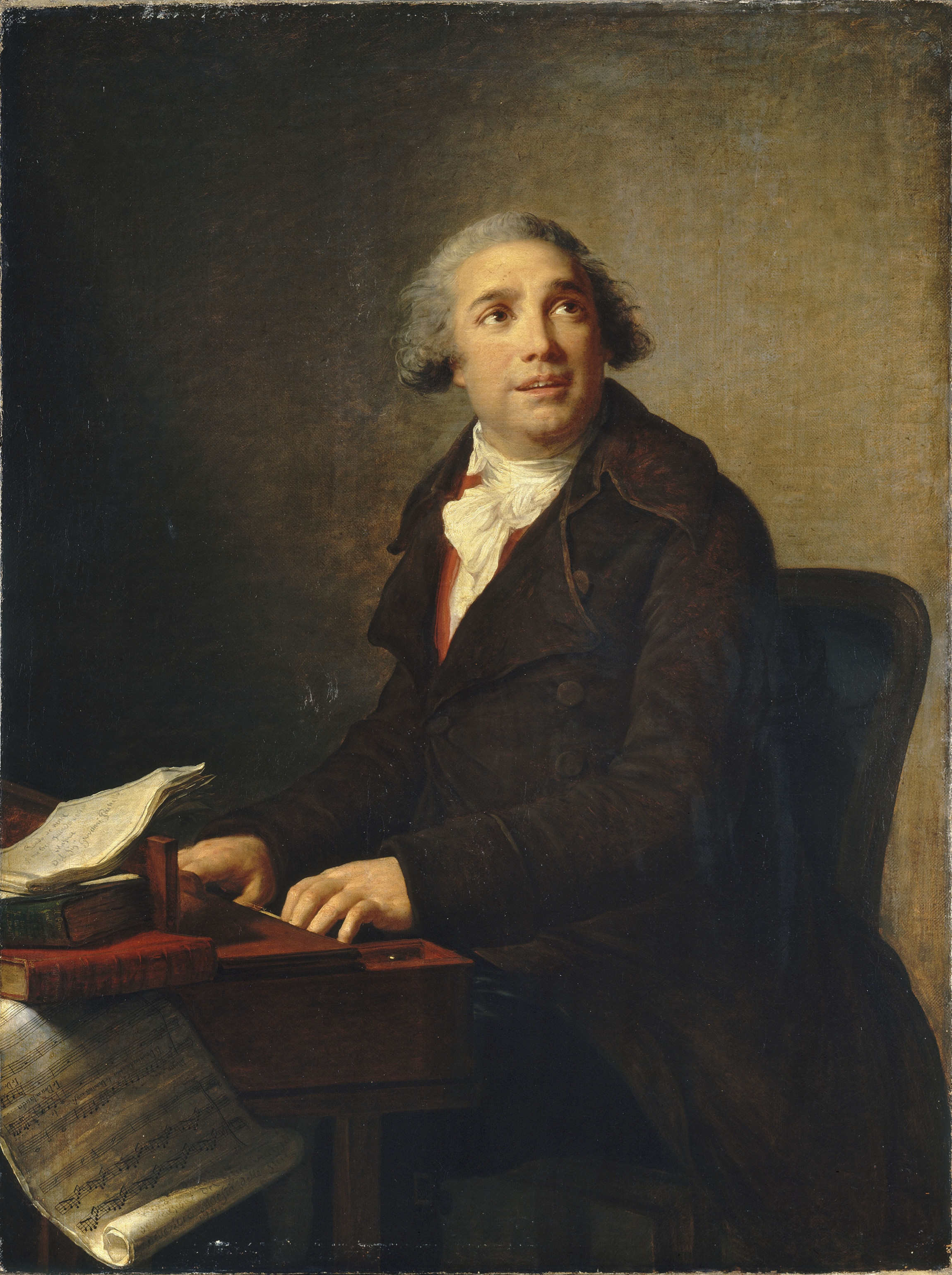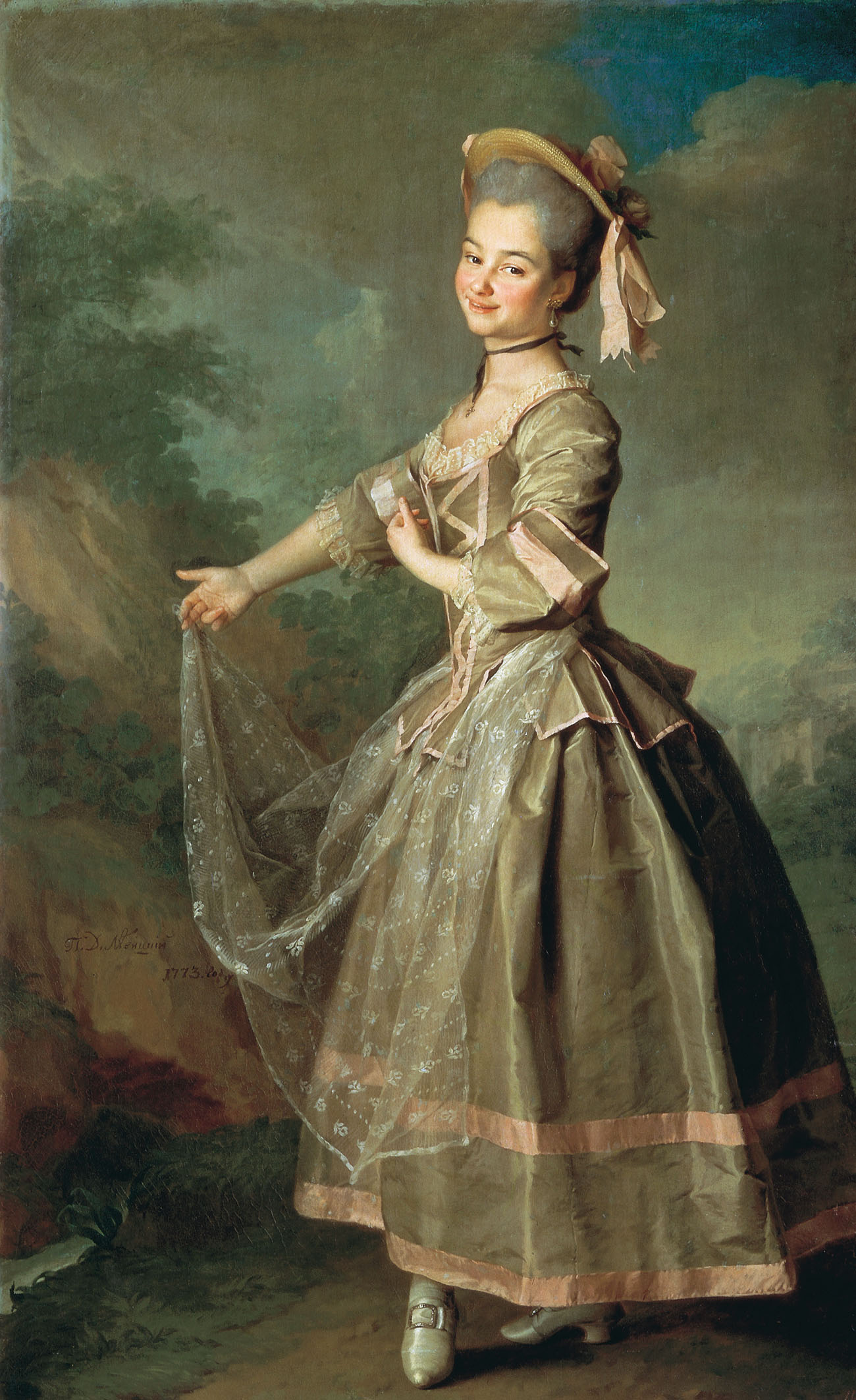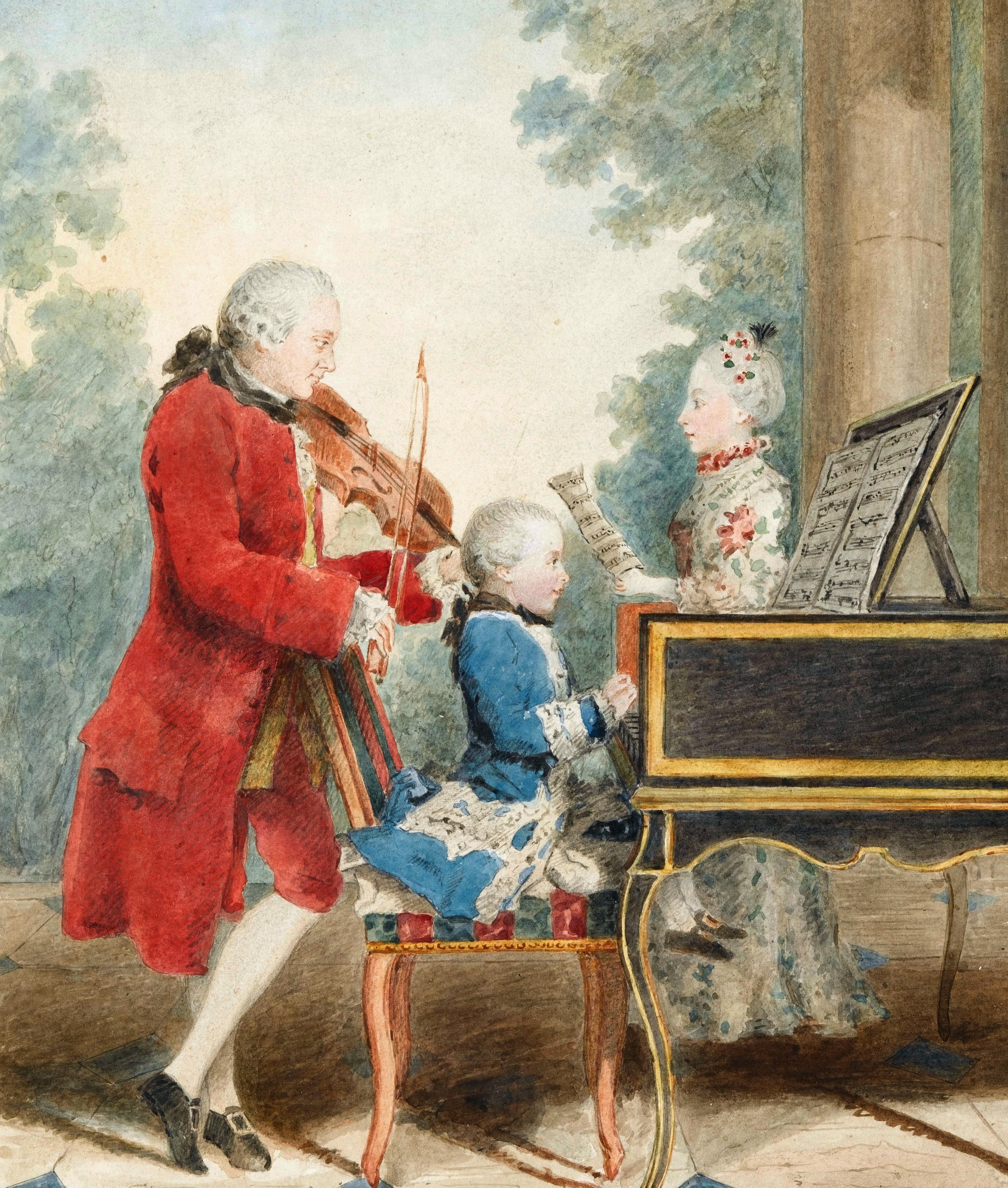|
Paisiello
Giovanni Paisiello (or Paesiello; 9 May 1740 – 5 June 1816) was an Italian composer of the Classical era, and was the most popular opera composer of the late 1700s. His operatic style influenced Mozart and Rossini. Life Paisiello was born in Taranto in the Apulia region and educated by the Jesuits there. He became known for his beautiful singing voice and in 1754 was sent to the Conservatorio di S. Onofrio at Naples, where he studied under Francesco Durante, and eventually became assistant master. For the theatre of the Conservatorio, which he left in 1763, he wrote some intermezzi, one of which attracted so much notice that he was invited to write two operas, ''La Pupilla'' and ''Il Mondo al Rovescio'', for Bologna, and a third, ''Il Marchese di Tidipano'', for Rome. His reputation now firmly established, he settled for some years at Naples, where, despite the popularity of Niccolò Piccinni, Domenico Cimarosa and Pietro Guglielmi, of whose triumphs he was bitterly jealous, h ... [...More Info...] [...Related Items...] OR: [Wikipedia] [Google] [Baidu] |
Il Barbiere Di Siviglia (Paisiello)
''Il barbiere di Siviglia, ovvero La precauzione inutile'' (''The Barber of Seville, or The Useless Precaution'') is a comic opera by Giovanni Paisiello to a libretto by Giuseppe Petrosellini, even though his name is not identified on the score's title page. The opera was first performed on at the Imperial Court, Saint Petersburg. It was adapted from the 1775 play ''Le Barbier de Séville'' of Pierre Beaumarchais. The full title for the opera reads: ''Il barbiere di Siviglia, ovvero La Precauzione inutile, dramma giocoso per musica tradotto liberamente dal francese, da rappresentarsi nel Teatro Imperiale del corte, l'anno 1782'', "Paisiello's and Rossini's ''Barbiere di Siviglia''" (April 1939). ''Music & Letters'', 20 (2): pp. 157–167. (Trans: "The Barber of Seville, or The Useless Precaution, comical drama with music freely translated from the French, presented at the Imperial Court Theater, the year 1782"). The story essentially follows the original Beaumarchais play, and ... [...More Info...] [...Related Items...] OR: [Wikipedia] [Google] [Baidu] |
Gioachino Rossini
Gioachino Antonio Rossini (29 February 1792 – 13 November 1868) was an Italian composer who gained fame for his 39 operas, although he also wrote many songs, some chamber music and piano pieces, and some sacred music. He set new standards for both comic and serious opera before retiring from large-scale composition while still in his thirties, at the height of his popularity. Born in Pesaro to parents who were both musicians (his father a trumpeter, his mother a singer), Rossini began to compose by the age of 12 and was educated at music school in Bologna. His first opera was performed in Venice in 1810 when he was 18 years old. In 1815 he was engaged to write operas and manage theatres in Naples. In the period 1810–1823 he wrote 34 operas for the Italian stage that were performed in Venice, Milan, Ferrara, Naples and elsewhere; this productivity necessitated an almost formulaic approach for some components (such as overtures) and a certain amount of self-borrowing. During ... [...More Info...] [...Related Items...] OR: [Wikipedia] [Google] [Baidu] |
Rossini
Gioachino Antonio Rossini (29 February 1792 – 13 November 1868) was an Italian composer who gained fame for his 39 operas, although he also wrote many songs, some chamber music and piano pieces, and some sacred music. He set new standards for both comic and serious opera before retiring from large-scale composition while still in his thirties, at the height of his popularity. Born in Pesaro to parents who were both musicians (his father a trumpeter, his mother a singer), Rossini began to compose by the age of 12 and was educated at music school in Bologna. His first opera was performed in Venice in 1810 when he was 18 years old. In 1815 he was engaged to write operas and manage theatres in Naples. In the period 1810–1823 he wrote 34 operas for the Italian stage that were performed in Venice, Milan, Ferrara, Naples and elsewhere; this productivity necessitated an almost formulaic approach for some components (such as overtures) and a certain amount of self-borrowing. During ... [...More Info...] [...Related Items...] OR: [Wikipedia] [Google] [Baidu] |
The Barber Of Seville
''The Barber of Seville, or The Useless Precaution'' ( it, Il barbiere di Siviglia, ossia L'inutile precauzione ) is an ''opera buffa'' in two acts composed by Gioachino Rossini with an Italian libretto by Cesare Sterbini. The libretto was based on Pierre Beaumarchais's French comedy ''The Barber of Seville'' (1775). The première of Rossini's opera (under the title ''Almaviva, o sia L'inutile precauzione'') took place on 20 February 1816 at the Teatro Argentina, Rome, with designs by Angelo Toselli. Rossini's ''Barber of Seville'' has proven to be one of the greatest masterpieces of comedy within music, and has been described as the opera buffa of all "opere buffe". After two hundred years, it remains a popular work. Composition history Rossini's opera recounts the events of the first of the three plays by French playwright Pierre Beaumarchais that revolve around the clever and enterprising character named Figaro, the barber of the title. Mozart's opera ''The Marriage of Fi ... [...More Info...] [...Related Items...] OR: [Wikipedia] [Google] [Baidu] |
Michael Kelly (tenor)
Michael Kelly (25 December 1762 – 9 October 1826) was an Irish tenor, composer and theatrical manager who made an international career of importance in musical history. One of the leading figures in British musical theatre around the turn of the nineteenth century, he was a close associate of playwright and poet Richard Brinsley Sheridan. He also became friends with musicians such as Mozart and Paisiello, and created roles for the operas of both composers. With his friend and fellow singer Nancy Storace, he was one of the first tenors of that era from Britain and Ireland to become famous in Italy and Austria. In Italy he was also known as O'Kelly or even Signor Ochelli. Although the primary source for his life is his ''Reminiscences'', doubt has been cast on the reliability of his own account, and it has been said that ' y statement of Kelly's is immediately suspect.' Dublin beginnings Michael Kelly's father Thomas, a Roman Catholic wine merchant and dancing-master, held an im ... [...More Info...] [...Related Items...] OR: [Wikipedia] [Google] [Baidu] |
Étienne Méhul
Étienne Nicolas Méhul (; 16 November 1765 ~ 24 December 1817) was a French composer of the Classical period (music), classical period. He was known as "the most important opera composer in France during the French Revolution, Revolution". He was also the first composer to be called a "Romanticism, Romantic". He is known particularly for his operas, written in keeping with the reforms introduced by Christoph Willibald Gluck and Wolfgang Amadeus Mozart. Life Méhul was born at Givet in Ardennes to Jean-François Méhul, a wine merchant, and his wife Marie-Cécile (née Keuly). His first music lessons came from a blind local organist. When he showed promise, he was sent to study with a German musician and organist, , at the monastery of Lavaldieu, a few miles from Givet. Here Méhul developed his lifelong love of flowers. In 1778 or 1779 he went to Paris and began to study with Jean-Frédéric Edelmann, a harpsichord player and friend of Méhul's idol Christoph Willibald Gluck. ... [...More Info...] [...Related Items...] OR: [Wikipedia] [Google] [Baidu] |
Domenico Cimarosa
Domenico Cimarosa (; 17 December 1749 – 11 January 1801) was an Italian composer of the Neapolitan school and of the Classical period. He wrote more than eighty operas, the best known of which is ''Il matrimonio segreto'' (1792); most of his operas are comedies. He also wrote instrumental works and church music. Cimarosa was principally based in Naples, but spent some of his career in various other parts of Italy, composing for the opera houses of Rome, Venice, Florence and elsewhere. He was engaged by Catherine II of Russia as her court composer and conductor between 1787 and 1791. In his later years, returning to Naples, he backed the losing side in the struggle to overthrow the monarchy there, and was imprisoned and then exiled. He died in Venice at the age of 51. Life and career Early years Cimarosa was born in Aversa, a town near Naples. His family name was Cimmarosa, which is how he is recorded on his baptismal record. He appears to have been an only child. His fath ... [...More Info...] [...Related Items...] OR: [Wikipedia] [Google] [Baidu] |
La Serva Padrona
''La serva padrona'', or ''The Maid Turned Mistress'', is a 1733 intermezzo by Giovanni Battista Pergolesi (1710–1736) to a libretto by Gennaro Federico, after the play by Jacopo Angello Nelli. It is some 40 minutes long, in two parts without overture, and was written as light-hearted staged entertainment between the acts of Pergolesi's serious opera ''Il prigionier superbo''. More specifically each of the two parts, set in the same dressing room, played during an intermission of the three-act opera to amuse people who remained in their seats. Federico's libretto was also set by Giovanni Paisiello, in 1781. Performance history ''La serva padrona'' and the opera seria it punctuates were premiered at the Teatro San Bartolomeo on 5 September 1733, the first performances there after an earthquake the previous year in Naples had closed all theatres. Both were written for the birthday of Holy Roman Empress Elisabeth Christine of Brunswick-Wolfenbüttel a few days earlier. ''Il prig ... [...More Info...] [...Related Items...] OR: [Wikipedia] [Google] [Baidu] |
Francesco Durante
Francesco Durante (31 March 1684 – 30 September 1755) was a Neapolitan composer. Biography He was born at Frattamaggiore, in the Kingdom of Naples, and at an early age he entered the '' Conservatorio dei poveri di Gesù Cristo'', in Naples, where he received lessons from Gaetano Greco. Later he became a pupil of Alessandro Scarlatti at the Conservatorio di Sant'Onofrio. He is also supposed to have studied under Bernardo Pasquini and Giuseppe Ottavio Pitoni in Rome, but there is no documentary evidence. He is said to have succeeded Scarlatti in 1725 at '' Sant' Onofrio'', and to have remained there until 1742, when he succeeded Porpora as head of the Conservatorio di Santa Maria di Loreto, also in Naples. This post he held for thirteen years, till his death in Naples. He was married three times. His fame as a teacher was considerable, and Niccolò Jommelli, Giovanni Paisiello, Giovanni Battista Pergolesi, Niccolò Piccinni and Leonardo Vinci were amongst his pupils. As a tea ... [...More Info...] [...Related Items...] OR: [Wikipedia] [Google] [Baidu] |
Barbara Ployer
Maria Anna Barbara or Babette Ployer (2 September 1765 – before April 1811) was an Austrian piano and composition pupil of Wolfgang Amadeus Mozart, for whom he wrote two piano concertos in 1784, No. 14 KV. 449 and No. 17, KV. 453, which were both premiered at her residence by her in 1784. She was born on 2 September 1765 in Sarmingstein, Austria, and died before April 1811, in Bresane, Croatia. She was the daughter of Franz Kajetan Ployer, a timber-merchant and tax collector. After her mother died in 1779 she moved to Vienna to live with her uncle, Court Councillor Gottfried Ignaz von Ployer, the agent of the Salzburg court in Vienna en, Viennese , iso_code = AT-9 , registration_plate = W , postal_code_type = Postal code , postal_code = , timezone = CET , utc_offset = +1 , timezone_DST ..., where she came in contact with Mozart. After her marriage she moved to Kreuz in Croat ... [...More Info...] [...Related Items...] OR: [Wikipedia] [Google] [Baidu] |
Classical Period (music)
The Classical period was an era of classical music between roughly 1750 and 1820. The Classical period falls between the Baroque and the Romantic periods. Classical music has a lighter, clearer texture than Baroque music, but a more sophisticated use of form. It is mainly homophonic, using a clear melody line over a subordinate chordal accompaniment, Blume, Friedrich. ''Classic and Romantic Music: A Comprehensive Survey''. New York: W. W. Norton, 1970 but counterpoint was by no means forgotten, especially in liturgical vocal music and, later in the period, secular instrumental music. It also makes use of ''style galant'' which emphasized light elegance in place of the Baroque's dignified seriousness and impressive grandeur. Variety and contrast within a piece became more pronounced than before and the orchestra increased in size, range, and power. The harpsichord was replaced as the main keyboard instrument by the piano (or fortepiano). Unlike the harpsichord, which plucks str ... [...More Info...] [...Related Items...] OR: [Wikipedia] [Google] [Baidu] |
Taranto
Taranto (, also ; ; nap, label= Tarantino, Tarde; Latin: Tarentum; Old Italian: ''Tarento''; Ancient Greek: Τάρᾱς) is a coastal city in Apulia, Southern Italy. It is the capital of the Province of Taranto, serving as an important commercial port as well as the main Italian naval base. Founded by Spartans in the 8th century BC during the period of Greek colonisation, Taranto was among the most important in Magna Graecia, becoming a cultural, economic and military power that gave birth to philosophers, strategists, writers and athletes such as Archytas, Aristoxenus, Livius Andronicus, Heracleides, Iccus, Cleinias, Leonidas, Lysis and Sosibius. By 500 BC, the city was among the largest in the world, with a population estimated up to 300,000 people. The seven-year rule of Archytas marked the apex of its development and recognition of its hegemony over other Greek colonies of southern Italy. During the Norman period, it became the capital of the Principality of ... [...More Info...] [...Related Items...] OR: [Wikipedia] [Google] [Baidu] |








